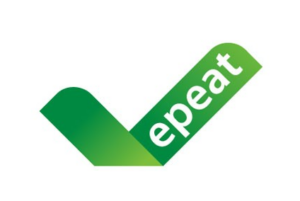The Epeat label from the Green Electronics Council (GEC) is an important one for those that sell into the US government and public organisation market in the USA. The organisation has now updated its requirements for monitors and PCs that will come into effect from November 2018.
The organisation said that to ensure consistent Epeat-registered product availability, there will be a six month overlap period where products will be listed that meet both the old and the new criteria. Products meeting the updated category criteria will be available this November. In May of 2019, the organisation will archive all products that meet the old criteria, and only those products that meet the new criteria will be actively registered with Epeat.
The GEC said that it is very likely that the majority of the products registered to the new criteria may only achieve an Epeat Bronze rating. This is because the new criteria are much more rigorous, and it is likely that a Bronze-registered product under the new criteria will exceed the sustainability features of a Gold-registered product under the old criteria.
The GEC will run a webinar about the new requirements on June 27th.
As well as looking at manufacturers’ supply chains, including the following topics
- Full substance inventory in product
- F-GHG in semiconductor and display manufacturing
- Green product transport • Renewable energy use
- Energy management system/energy performance improvement
- Socially responsible supplier manufacturing – labour practices and worker health and safety
- Conflict minerals disclosure and due diligence
- Environmental Management Systems (EMS)
- Corporate environmental reporting
The issues addressed in the new version are detailed in the table.
| Impacts Addressed | EPEAT Computer and Display Criteria |
| Toxics Reduction |
|
| Climate Change/GHG Emission Reduction |
|
| Resource Consumption |
|
| End-of-Life Impacts |
|
| Social Responsibility |
|
| Environmental Management and Reporting |
|

